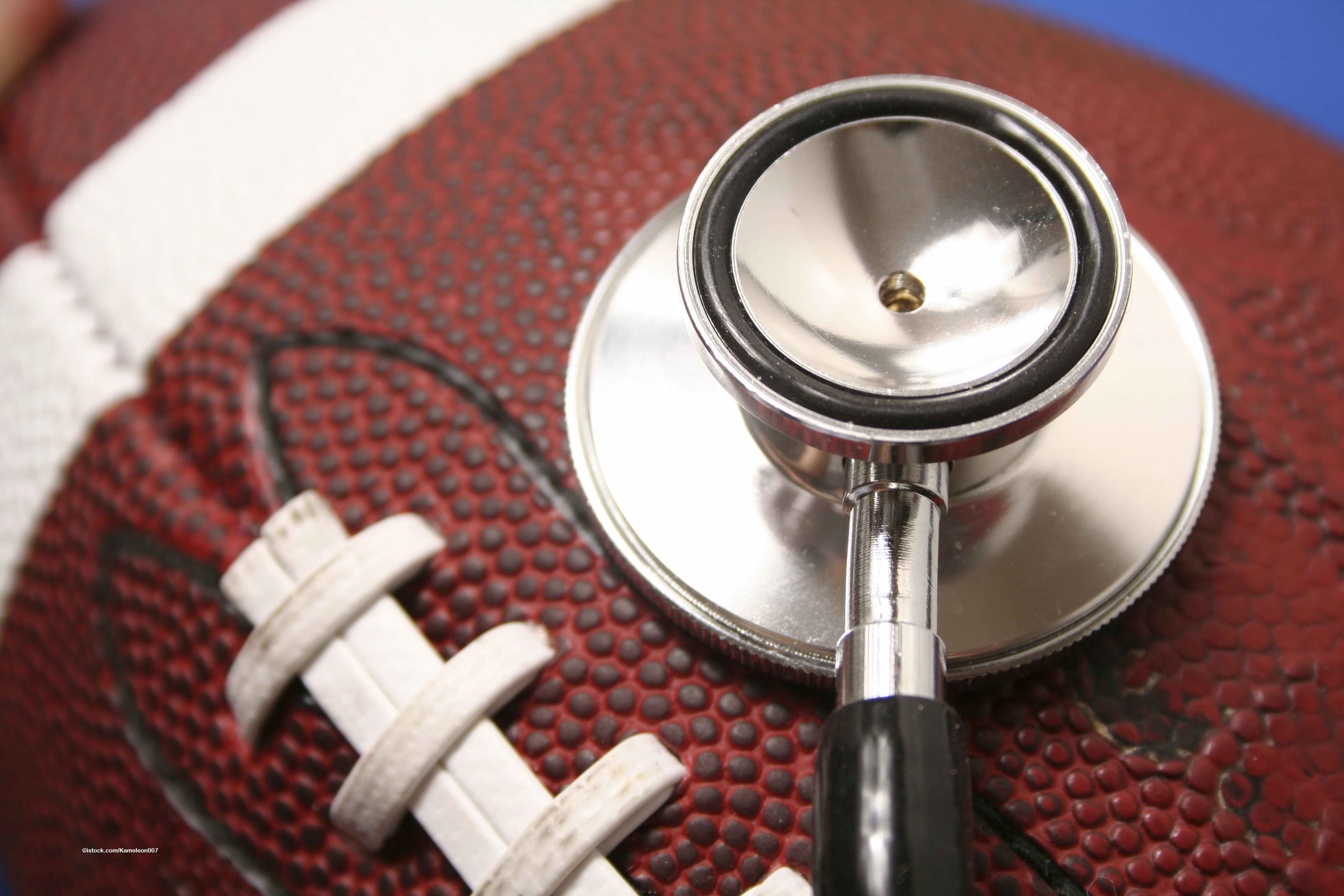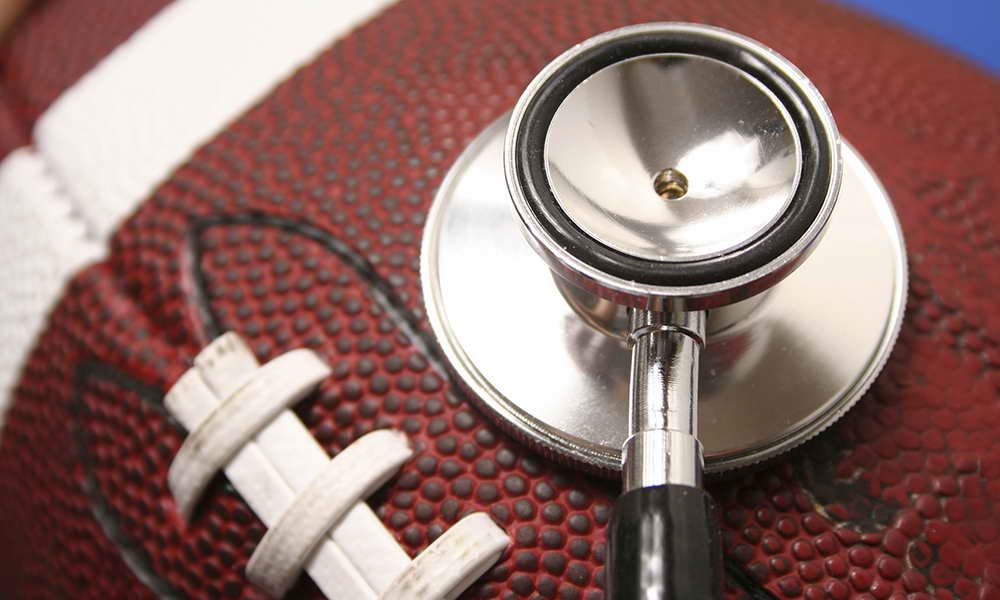March 24, 2015
3/24: Injured Top College Athletes Should Not Carry the Costs, Says Majority… Americans Divide over College Degrees in Sports
Americans favor change on a major issue relating to NCAA student-athletes.
 Providing health insurance to injured, top college athletes after they graduate receives the support of majorities of Americans, 56%, and college sports fans, 55%, alike.
Providing health insurance to injured, top college athletes after they graduate receives the support of majorities of Americans, 56%, and college sports fans, 55%, alike.
Currently, as detailed in Bernie Goldberg’s report in this month’s Real Sports one-hour NCAA special, the NCAA does not require colleges to provide such insurance for their athletes, except in the most extreme circumstances.
Americans’ opinions divide over whether or not college athletes should be permitted to major in and receive degrees in their sport.
Another much debated question is whether or not top college basketball and football players should be paid. Nearly two-thirds of Americans, 65%, do not think they should receive monetary compensation for their time and efforts. However, about one-third of Americans think they should be on the payroll, a slight increase from 29% just last year. Americans under thirty and African Americans are much more supportive of this idea.
Sexual assault on college campuses has been a topic which has drawn recent national attention by, both, politicians and the media. But, when college athletes are involved in such incidents do Americans think they are judged by a different standard? Nearly six in ten residents, 58%, think they are treated differently, including 36% who believe they are given greater slack and 22% who say they are held to a tougher standard.
A plurality of Americans, 46%, though, do not think college athletes are more likely to either commit or be accused of sexual assault than non-athletes. In fact, only 15% believe they are more likely than their college age counterparts to be involved in such incidents.
Again, on many of these questions, opinion differs by age and race.
This HBO Real Sports/Marist Poll has been conducted in conjunction with the Marist College Center for Sports Communication
Click Here for Complete March 24, 2015 USA HBO Real Sports/Marist Poll Release and Tables
“The public’s view on post-collegiate health insurance and the ability to even major in sports recognizes that top college athletes are making real sacrifices of time and even physical wellness,” says Dr. Keith Strudler, Director of The Marist College Center for Sports Communication. “It also suggests the public largely sees value in college sports as an academic enterprise. That’s a contrast to the common stereotype of the privileged college athlete.”
Poll points:
- 56% of Americans, including 21% who strongly have this view, support providing health insurance to college athletes after they graduate for long-term medical problems that are a result of injuries they received while playing college sports. 40%, including 12% who firmly have this position, oppose such benefits. Similar proportions of college sports fans have these views.
- Younger Americans are more likely than older residents to support health insurance for college athletes after graduation. 75% of Americans under 30, compared with 47% of those 60 and older share this view.
- Race also comes into play. Nearly half of African Americans, 49%, strongly support such a proposal compared with 27% of Latinos and just 15% of white residents.
- Americans, and college sports fans alike, divide about whether or not college athletes should be allowed to major in and receive a degree in the sport they play. 49% of Americans favor such a program while 45% oppose it.
- Demographic differences exist. African Americans, 69%, residents under 30 years old, 60%, Midwesterners, 57%, and residents without college degrees, 55%, are among those who offer the most support for majors in college sports.
- 65% of Americans do not think student athletes in top men’s football and basketball programs should be paid. 33% believe they should be. There has been a slight increase in the proportion of those who say these athletes should be paid. When HBO Real Sports/Marist reported this question last March, 29% of residents supported such compensation.
- While majorities of those in all generations oppose paying college athletes, residents under 30, 41%, are the most likely to favor it. This is an increase from 34% in March 2014.
- 59% of African Americans favor paying college athletes. 42% of Latinos and 26% of whites share this view. There has been a shift among Latinos. Last year, 27% supported monetary compensation for top college athletes.
- Nearly six in ten Americans, 58%, think college athletes who commit sexual assault are not treated the same as non-college athletes. This includes 22% who say they are treated more harshly and 36% who report they are treated less harshly. Only 33% think they receive the same treatment. Of note, 42% of Americans age 45 to 59 think college athletes accused of sexual assault face less severe penalties than those who do not play a sport.
- While pluralities of African Americans, 43%, and Latinos, 39%, assert that college athletes and non-athletes who commit sexual assault are on level ground, 40% of whites say athletes are dealt with less harshly. A notable 32% of African Americans say they are treated more harshly.
- 46% of Americans say top college athletes are no more likely to commit or be accused of sexual assault than non-athletes. A notable 32%, however, report that sports players are more likely to be accused of sexual crimes, and 15% think they are more likely to commit them.

